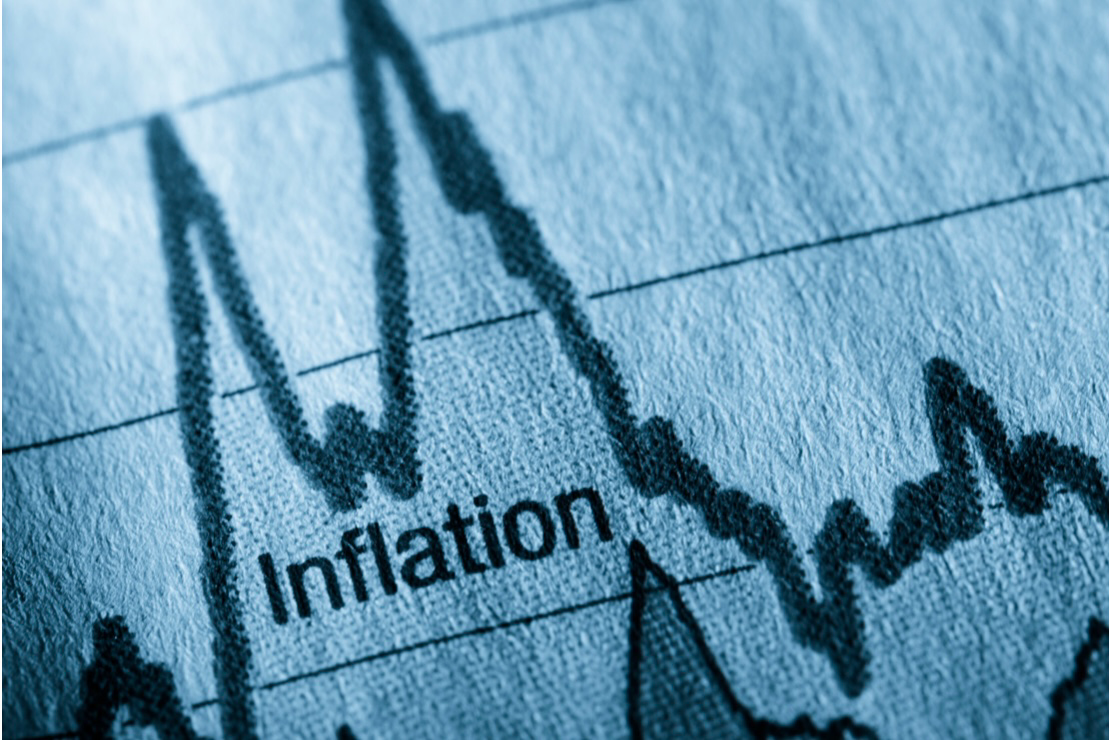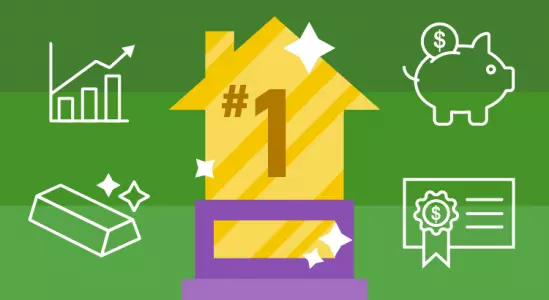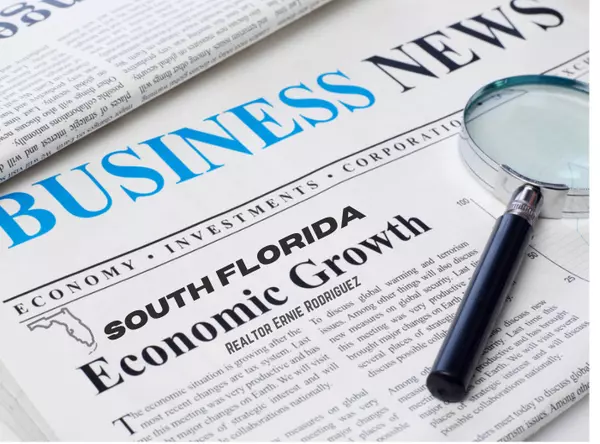2022 Outlook, Q1
A question I am asked every week is, how long will this booming market last. Last week, I was having a conversation with a group of friends regarding the housing and asked if I was calling January 2022 the peak of this bull run. My answer, yes. Below, I provide several factors into my reason.

The Pandemic
In March 2020, COVID impacted the world, and the local housing market briefly cooled down as many buyers feared a repeat of 2008. At that time, I was still optimistic about the economy’s outlook. This presented a good buying opportunity, and one of my clients was able to reduce his original offer by $20,000 in a matter of 3 weeks due to fear of the virus. While we have made progress, no one could have predicted we would be dealing with this virus two years later. Many states are still imposing strict restrictions, affecting small businesses already on the verge of collapsing. We will have to monitor the small businesses struggling to survive.

Inflation
The Consumer Price Index (CPI) rose 6.8% for the 12 months ending November 2021. This is the most significant 12-month increase since 1982. The index for all items, not including food and energy, rose 4.9 percent over the last 12 months, while energy rose 33.3% over the previous year, and the food index increased 6.1%. These changes are the largest 12-month increases in the last 13 years. The Eurozone inflation, which measures Europe’s inflation over the last two decades, also set a new record of 5% in December 2021.

Housing has become unaffordable for the average family and first-time homebuyers in South Florida.
Housing increased approximately 20% during 2021 in Miami, making affordable housing almost non-existent. For me, the first major concern was when Zillow announced they were pausing their iBuyer program due to “labor shortages.” About a month later, Zillow announced they were done with iBuyer and would offload their entire real estate portfolio at a loss and lay off 20% of their workforce. When a company like Zillow takes such a drastic and sudden move, I cannot help but wonder if something bigger is coming, and they are taking extreme measures now to keep the company afloat in the future. Another concern for me is the increase in the maximum conforming loan limit. The new conforming loan limit for 2022 is $647,200.00, a $98,950, or 18 percent, higher than 2021’s maximum of $548,250, making this the largest increase ever.

Wallstreet, follow the money.
On December 1, 2021, CNBC reported CEOs and insiders had sold a record $69 billion of their stock, a whopping 30% increase over 2020 and a 79% increase compared to the 10-year average. Many people believe this was for tax purposes, but such an increase leads me to believe that these CEOs know their companies are overvalued and are following basic trading rules “sell high, buy low.” Like Warren Buffet says, “Be fearful when others are greedy, and greedy when others are fearful.” Over the last 12 months, we have seen an enormous amount of greed in the markets. Trillions of dollars have been pumped into stocks, cryptos, and now NFTs, particularly meme stocks and cryptos. NFTs are being bought and resold for millions of dollars, sometimes in a matter of days. None of this makes sense to me. It has many similarities to the dot com bubble.
Interest rates have been low for too long.
Over the last five years, buyers have been able to get a mortgage under 4%. This has caused a massive pool of buyers, which, combined with low inventory, has caused real estate to inflate. The Federal Reserve has already announced its plans to hike rates. It is only a matter of when. Some economists believe that current prices already account for the rate hikes, but I have to disagree. Many people are hopeful that the FED will continue to postpone hiking rates, and the bull run will continue. However, the truth is, it is unavoidable. Once it does occur, there will be fewer buyers, meaning sellers will have to bring down their prices, and deflation will begin. To give you a better understanding, currently, a $600,000 home will cost you approximately $2,570 a month (principal & interest only) at a 3.1%. If rates go to 5%, which they were not too long ago, your payment will be $3,221. So if you wanted to stick to a monthly payment of $2,570 when rates are at 5%, then you would have to settle for a home of $479,000. A 5% interest rate can be here as early as 2023.
Nobody wants to work, but America is borrowing money.
Walk into any store, and you will find a “now hiring” sign. I have spoken to dozens of local small store owners, and none of them are optimistic about the future. Small restaurants with 12 employees at the end of 2019 now have less than 5. At the same time, the US Consumer Credit set a new record at the end of 2021. Americans have been borrowing the most from credit card companies since April 1998. While many are not selling their homes, there was a 33% increase in refinance cashouts in 2021.
The trade, food, and energy crisis.
Ever since the arrival of Covid, the shipping industry has been affected, with no sight of recovering any time soon. Shipping costs are drastically up, and US ports have been backed up for several months. In the end, these costs will trickle down to the consumer. The global energy crisis is affecting the costs of energy. Unfortunately, many people are unaware that many countries now have “blackout days” to control the energy crisis. Food has increased to a ten-year high, mainly due to China stockpiling. By this summer, analysts predict China will hold 69% of the world’s corn, 60% of the grain, and 51% of the global wheat. This has sent food prices up worldwide.
The collapse of Evergrande.
The second-largest property developer in China, Evergrande, is on the verge of collapsing and most Americans are unaware of it. They currently owe $300 billion in debt and are struggling to pay. Some are calling this China’s Lehman Moment. While I am not convinced it’s a Lehman moment, I’m not ruling it out. Several US companies, such as Blackrock, are invested in Evergrande, so it is a situation we should be monitoring as it could be a ripple effect.

Housing crashes do not occur overnight. The stock market is usually the first indicator of a down or upward trend. Since 1926, the US economy has been on an uptrend 75% of the time. We have been on the uptrend every year since 2009, except for a slight decline in 2018. Crashes in the economy are a normal part of the cycle.
I think the US Government is in a no-win situation. If you raise rates, you risk sparking fear, leading to a selloff. If you do not raise rates, inflation will continue to spiral out of control, and the average American will continue to be priced out. The administration has a challenging task to navigate the country through the inflated economy without any repercussions. Ultimately, I believe the FED will raise rates, and we will begin to see deflation.

So how should a buyer play this market? Two questions I have everyone ask themselves when they ask me about the current housing market. Number 1, ask yourself if you think the growth we have had in the last 18 months is typical. If you think it is, then buy. If you have to pause or are unsure, go with your gut feeling and do further research. If you are a first-time homebuyer or considering reselling your new purchase in the future, I caution against buying in this market. Why? Many first-time homebuyers usually want to upgrade to a bigger home within 5-7 years from the date of their new purchase. There is a risk that your home purchase today may be worth less in 5 years than it is today. Some people who bought in 2007 and early 2008 took ten years to recover. If you are considering buying your “forever” home or a buy-and-hold property, then you are on the safer side. In the end, real estate always recovers. The real estate market has been on the rise since 2009, so we are due for a dip.
If a crash was coming, South Florida might be in the best position to ride the wave. Florida has seen a record-breaking amount of people moving to the state to avoid strict restrictions and high taxes. Big tech has also relocated to the state, which has created thousands of jobs. I don't see this trend slowing down and believe South Florida is in the best position for any economic challenges.
A crash, if any, is a rare opportunity.
Categories
Recent Posts

![It’s Still a Sellers’ Market [INFOGRAPHIC]](https://img.chime.me/image/fs/chimeblog/20220404/16/w600_original_1b3ec1b1-87d3-46a7-9617-d3c71eac0ff2-png.webp)


![What’s Driving Today’s High Buyer Demand? [INFOGRAPHIC]](https://img.chime.me/image/fs/chimeblog/20220221/16/w600_original_0769980d-2582-4864-9c7e-7aa1fff09550-png.webp)





GET MORE INFORMATION

